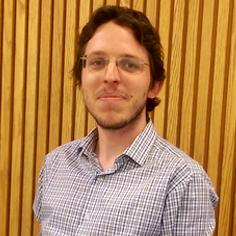
This page is out of date (May 2020) : I am keeping it here only for archiving purpose. Please see my current homepage.
My research in pure mathematics investigates interactions between algebra, infinite combinatorics, category theory, and large cardinals, often using ideas from model theory.
I also enjoy sharing my passion for mathematics with others: at Harvard, I have taught a variety of undergraduate classes, including probability theory, Math-101 (sets, groups, and topology - the basic intro to proof class), mathematical logic, linear algebra, and multivariable calculus. In the academic year 2019-20, I taught (finite) combinatorics, algebra, and set theory. Some of my teaching material can be found on the teaching page.
More specifically, my research focuses on accessible categories and a concrete relative, abstract elementary classes (AECs). Very roughly, accessible categories are categories where every object can be written as a directed colimit of a fixed set of small subobjects. For example, every group is the union of its finitely generated subgroups, so the category of groups is an accessible category. Abstract elementary classes are concrete accessible categories where all morphisms are monomorphisms. Their concreteness allows "point by point" constructions and the use of powerful set-theoretic methods. Accessible categories and AECs also provide a foundation for generalizing the model theory of classes axiomatizable in first-order logic.
In the study of AECs, I proved from large cardinal axioms (with Shelah) Shelah's eventual categoricity conjecture: an AEC with a single object of some high-enough cardinality has a single object in all high-enough cardinalities. The conjecture had been open for forty years. The proof develops a theory of multidimensional diagrams ("excellence") for AECs. I have also proven several other variations on eventual categoricity (such as a full characterization of the categoricity spectrum in AECs with amalgamation, or ZFC eventual categoricity for universal classes) as well as developed a comprehensive underlying theory of stability and superstability for AECs.
In the study of accessible categories, I introduced (with Lieberman and Rosický) the notion of stable independence, which is a categorical generalization of the model-theoretic notion of forking, itself a generalization of linear independence in vector spaces and algebraic independence in fields. Category-theoretically, stable independence is a replacement for pushouts in setups where they are not available: it gives the "most general" amalgam of a given span. Stable independence is defined axiomatically, but it can be shown there is at most one notion satisfying the axioms. Still with Lieberman and Rosický, I connected stable independence with the theory of weak factorization systems: very roughly, existence of stable independence is tied to the existence of cofibrantly generated weak factorization systems: weak factorization systems whose left-hand side is generated by a set. This gives a new characterization of stability, and builds a bridge between model-theoretic stability theory and fields such as homotopy theory or homological algebra.
Set theory plays an important role in my work. With Lieberman and Rosický, I have investigated questions on presentability ranks (a replacement for cardinality, making sense in any accessible category) such as "when are presentability ranks successors?", and "when do large categories have objects of all successor presentability ranks?". We showed, for example, that assuming the singular cardinal hypothesis a large accessible category has objects of all presentability ranks that are successors of cardinals of sufficiently high cofinality.
The following survey, written for mathematicians at large, describes the big picture and some of the results above. All in all, I have published about thirty (30) peer-reviewed research papers, see my publication list.
I was at Harvard for three years, starting in September 2017. Before that, from September 2012 to May 2017, I was a Ph.D. student at Carnegie Mellon University (CMU). My advisor was Rami Grossberg and my thesis, Superstability and Categoricity in Abstract Elementary Classes is available from this webpage. For this work, I have received the following awards:
Before starting my Ph.D., I obtained a B.Sc. in "Systèmes de communication"[1] at the École Polytechnique Fédérale de Lausanne (EPFL). My initial research interests were in software verification and synthesis (I wrote an undergraduate thesis on generating code to solve linear optimization problems), so I also have a solid background in computer science. I work extensively with GNU/Linux systems and know several programming languages. My encounter with mathematical logic in 2010, and an exchange year at CMU in 2011-12 made me decide to change fields and turn to pure mathematics. I still maintain a strong interest and passion for computer science, both from an academic and practical perspective.
Want to know even more? Read my full academic CV (from May 2020), or go back to the main page.
[1] Communication systems: this merges electrical engineering, computer science, and mathematics. Topics include information theory, signal processing, networks engineering, networks security, and parallel systems.